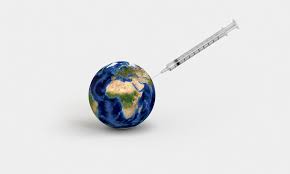Vaccine Hesitancy as a Global Health Issue
Apr 27, 2023
This paper discusses the global health issue of vaccine hesitancy, which is defined as a delay or refusal to vaccinate despite the availability of vaccines. Vaccine hesitancy has been an increasing concern for public health organizations throughout the world and has been linked to outbreaks of diseases that could have been prevented if more people were vaccinated.
The paper will first discuss what vaccine hesitancy is, why it has become a global health issue, and the effects it can have on communities. It will then look at some successful strategies that have been used in different countries to reduce vaccine hesitancy and increase immunization rates. Finally, recommendations on how this problem can be addressed globally will be made.

Vaccine hesitancy often stems from misconceptions about the safety and efficacy of vaccinations. These misconceptions can come from misinformation spread on social media or even from family members and friends who may not understand the importance of getting vaccinated. This could lead to an overestimation of risk associated with vaccine side effects which can then deter individuals from getting vaccinated. Vaccine hesitancy has become a global health issue as it can lead to outbreaks of vaccine-preventable diseases, in some cases leading to deaths.
There are many successful strategies that have been used in different countries to reduce vaccine hesitancy and increase immunization rates. Education campaigns, telephone helplines, providing easy access to information about vaccination requirements and benefits, financial incentives for immunization, inoculation reminders, and improving healthcare workers training are some of the strategies that have been used. However, these strategies tend to be country-specific, and it is difficult to find a “one size fits all” approach that is suitable for every country.
Therefore, this paper will suggest possible actions that public health organizations can take at the global level in order to address vaccine hesitancy. These include increasing collaboration between countries through sharing of information on successful strategies, strengthening immunization systems by providing appropriate training to healthcare workers and making sure vaccines are accessible and affordable, creating international initiatives to tackle negative perceptions around vaccination, and engaging with social media influencers.
In conclusion, vaccine hesitancy is a global health issue which could lead to outbreaks of preventable diseases if not addressed properly. It is essential for public health organizations to take the necessary actions at the global level in order to address this issue and ensure that people are well-informed about the benefits of vaccination and have access to it. Only then can we hope to reduce vaccine hesitancy, increase immunization rates, and ultimately protect communities from preventable diseases.
